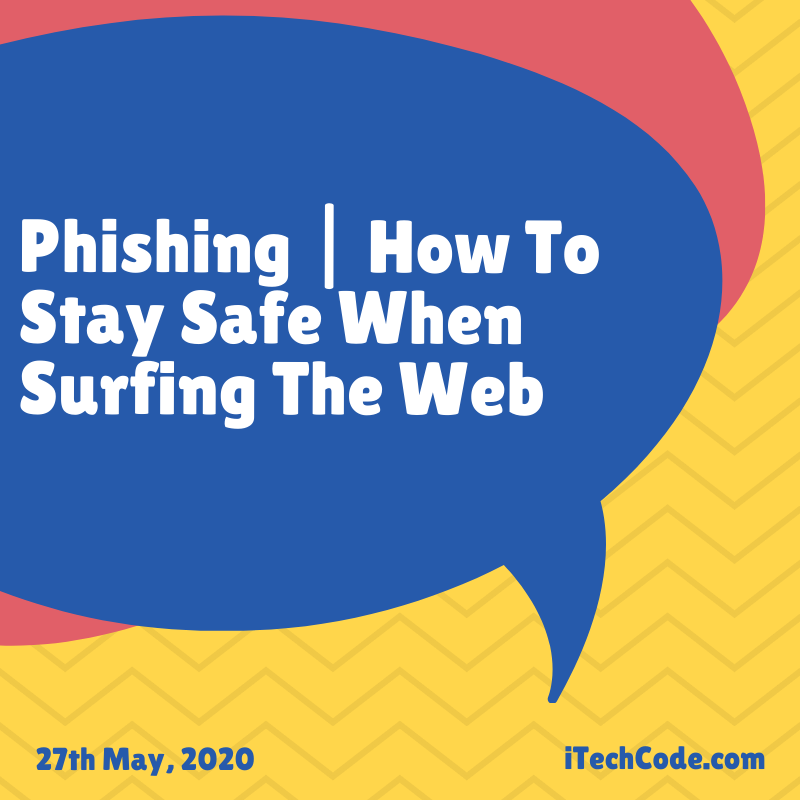Since the emergence of the internet, there have been malicious individuals trying to infringe on your safety – or exploiting any security failures that you might have.
Stolen credit cards, personal information, and other private property is the sad daily reality for internet users. Malicious individuals and hackers have many ways to go about doing this, and one of the most dangerous ways they do it is through phishing.
What Is Phishing?
Phishing is a scam that hackers and malicious individuals use to steal your personal information – such as your account information, credit card number, and other sensitive information. The oldest incarnation is the email scam, such as the Nigerian Prince emails.
The Nigerian Prince emails were a series of emails sent out to scam the user out of their money. While this isn’t purposefully built around stealing your information, it’s many variations were.
Phishing is a practice in which a hacker will attempt to steal your information by posing as a trustworthy source of authority within the platform you’re using.
Have you ever received an email from the service you’re using that requested your username and password for a select purpose? Well, this is most likely an example of an attempted phishing scam.
You might think that you are aware of scams, as this one has been around for quite a while – but don’t be too sure. Phishing scams themselves are only getting more and more sophisticated.
A well put together phishing scam won’t ask you for any information outright but will try to build up their reputability before they do so. And when they get your data, it can wreak havoc on you, your accounts, and your business.
Phishing poses a vast danger to businesses and individuals alike, and protecting yourself from phishing should be one of your most prominent safety concerns.
If you’re a phishing victim, you can experience some unsolicited charges from your credit card, loss of funds, losing your accounts, loss of access to other data, exposed personal information, and even blackmail.
How To Recognize it?
Even if it might seem like it, recognizing cybercrime and phishing scams isn’t the simplest thing in the world. To identify an elaborate phishing scam, you need to know what to look for. The best way to rid yourself of any possible phishing attempts is to practice safe browsing.
The Golden Rules of Safe Browsing
Image Credit: https://pixabay.com/photos/workstation-home-office-computer-405768/
If you want to stay safe while browsing the internet, you’ll have to follow the golden rules. While there are many more dangerous things aside from phishing that lurk on the internet, as long as you follow these precautions, you’re going to be safe for the most part. Make sure to:
- Keep all of your information private
- Don’t share your username or password with anyone
- Don’t trust unknown emails
- Avoid shady websites
- Keep all of your safety settings on
- Use a secure connection
- Don’t purchase from untrustworthy websites
- Ignore unsolicited emails and messages
- Use VPN software
- Always update your antivirus
Things To Watch Out For
As stated before, phishing scams aren’t as simple as a poorly worded email anymore. They’re far more elaborate, and protecting yourself from them is essential. There are a couple of things you should watch out for if you want to ensure that you’re absolutely safe from phishing.
Keep a unique eye out for odd web links, unusually short links. If a link seems to be shortened for one reason or another, it could be an attempt to install spyware on your PC, or will take you to a phishing scam.
Emails or messages from seemingly trustworthy sources are also dangerous. No reputable service will ever ask you for your private information, so remember never to disclose it.
Another very present danger of phishing comes in the manifestation of a form. Unless you’re absolutely sure you’re filling out a form, survey, or questionnaire from a reputable source, don’t fill it out at all.
A great way to tell if a message or email is fraudulent is the use of incorrect spelling. No trustworthy source will send you an email with spelling or grammatical errors. The fraudulent email is always going to have an odd address, which resembles the real thing.
In Conclusion
Phishing is a genuine danger lurking in the corners of the internet. It could seriously harm your personal or professional life, and protecting yourself from such a scam should be your top priority.
While you might think you’re well versed in how the internet works, it’s always good to keep one eye open for scams like this.


You can also stay updated by subscribing to iTechCode.